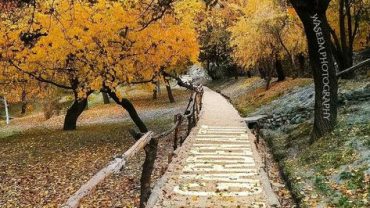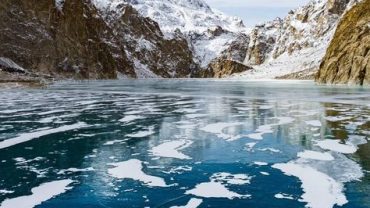7 Must-Know Tips for Planning a Hunza Valley Adventure
Discover 7 essential tips for planning your Hunza Valley adventure. Learn about itineraries, food, culture, and must-visit attractions.
1. Best Time to Visit Hunza Valley
The best time to visit Hunza Valley largely depends on what kind of experience you’re looking for. For a summer adventure, the months between April and October are ideal. During these months, you’ll experience pleasant temperatures ranging from 15°C to 25°C, making it perfect for trekking, sightseeing, and enjoying the lush green landscapes. If you want to witness Hunza in its full autumn glory, consider visiting in late September or October when the valley is covered in vibrant fall colors.
Winter, from November to March, brings a completely different charm to Hunza Valley. While the weather can be cold, with temperatures often dropping below freezing, you will be greeted with snow-capped peaks and a quieter, more peaceful environment. However, some remote areas may be difficult to access due to heavy snow, so be sure to check the weather and road conditions before planning your trip.
2. Top Attractions in Hunza
Altit and Baltit Forts
Hunza Valley is rich in history, and one of the best ways to explore this is by visiting the Altit and Baltit Forts. Altit Fort, over 900 years old, is a testament to the region’s cultural heritage. The fort offers stunning views of the surrounding valley and is a perfect spot to immerse yourself in Hunza’s history. Just a short drive away, you’ll find Baltit Fort, a beautiful 700-year-old structure that showcases traditional Hunza architecture. Both forts are open to visitors and provide excellent opportunities for photography and cultural exploration.
Attabad Lake
One of the most iconic attractions in Hunza is Attabad Lake. Formed in 2010 due to a massive landslide, the lake’s turquoise waters are surrounded by towering mountains, creating a picture-perfect setting. Whether you’re visiting in summer or winter, Attabad Lake offers stunning views, and you can enjoy activities such as boating and trekking around the area. In winter, the lake freezes, creating a unique icy landscape perfect for photography enthusiasts.
Eagle’s Nest
For panoramic views of Hunza Valley, don’t miss Eagle’s Nest. Located at an altitude of 3,500 meters, Eagle’s Nest offers breathtaking views of some of the world’s highest peaks, including Rakaposhi and Ultar Sar. The vantage point is ideal for trekkers, photographers, and nature lovers looking to capture the beauty of Hunza’s majestic landscapes. A visit to Eagle’s Nest is a must for those seeking the best viewpoints in the region.
3. Embrace Hunza’s Culinary Delights
Hunza Valley offers a unique culinary experience that you should not miss. Local specialties include Hunza bread, a delicious flatbread served with honey or apricot jam, and chapshoro, a savory pastry filled with meat and vegetables. You’ll also find a variety of fresh fruits, especially apricots, which are grown abundantly in the region and used in many dishes and desserts.
For a more authentic experience, visit the local restaurants and guesthouses in Karimabad, where you can enjoy traditional Hunza meals. Many of these establishments also offer stunning views of the valley, making the dining experience even more memorable.
4. Immerse Yourself in Hunza’s Rich Culture
Hunza Valley is home to a vibrant and unique culture that combines traditional practices with modern influences. During your visit, you’ll have the opportunity to meet the friendly local people, who are known for their hospitality and warmth. You can explore the valley’s ancient customs through cultural performances, local art, and folk music, or attend one of the many festivals held throughout the year.
If you’re interested in learning about the valley’s heritage, consider visiting a local museum or cultural center. These offer a fascinating look at the history and lifestyle of the Hunza people.
5. Tips for Transportation in Hunza
Getting to Hunza Valley can be an adventure in itself. From Islamabad, the easiest way to reach Hunza is by taking a private car or a public bus. The journey will take approximately 12-14 hours, depending on road conditions. The Karakoram Highway, which connects Hunza to the rest of Pakistan, is an incredible route that winds through dramatic mountain landscapes.
Once you arrive in Hunza, public transportation is available, but it’s often more reliable and comfortable to hire a private car or jeep. For more remote areas, you’ll likely need to hire a local driver, as some roads can be difficult to navigate, especially during winter.
6. Accommodation Options in Hunza
Hunza Valley offers a variety of accommodation options, from budget guesthouses to luxurious resorts. In the main town of Karimabad, you’ll find several guesthouses that offer stunning views of the surrounding mountains and valley. Many guesthouses offer traditional Hunza-style rooms, which are both cozy and charming.
If you prefer more luxurious stays, there are several boutique hotels and resorts offering modern amenities while maintaining the traditional ambiance of the region. For those seeking an authentic experience, some visitors opt for homestays, where you can stay with local families and learn about their way of life.
7. Pack for All Seasons
Weather in Hunza can be unpredictable, so it’s important to pack for all seasons. In the summer, temperatures are generally pleasant, but the evenings can get chilly, so bring layers. If you’re visiting in winter, be prepared for cold temperatures, especially in higher altitudes. Bring warm clothing, including thermal wear, a good jacket, and sturdy shoes for trekking. Don’t forget sunscreen and sunglasses, as the sun can be intense at higher elevations.
Conclusion
Hunza Valley is an extraordinary destination, offering natural beauty, rich culture, and unforgettable experiences. By following these 7 essential tips for your Hunza Valley adventure, you’ll ensure a memorable and enjoyable trip. Whether you’re exploring historical forts, savoring local dishes, or trekking through the stunning landscapes, Hunza is a place that will leave you with lasting memories.





Comment (0)